| |

|
DeLoG NEWSLETTER
No. 60 – 04/2022
|
|

|
| |
|
|
| |
Dear Reader,
welcome to issue No. 60 of the DeLoG Newsletter which showcases the Network’s most recent activities and offers an overview of current news as well as upcoming events and courses.
As the war in Ukraine is still raging, it has become clear that urban areas are the main stage of the conflict. The grim news reaching us see cities’ streets and buildings as the witnesses of total destruction. The protection of people is in the hands of local governments, who are directly under attack. Under these circumstances, it has never been more challenging for local authorities to provide for their citizens health and security.
But cities are also places of resilience. Cooperation among municipalities sparked spontaneously to coordinate aid for Ukrainian local governments. Most members and partners of our Network are directly engaged in support initiatives. Some are featured in this newsletter; others are in the making. We hope you will find this issue useful and, why not, even inspiring for more action.
For further information, please visit DeLoG Website. Our 'Knowledge' and 'Event' sections provide you with access to the newest publications on topics of decentralisation and local governance, as well as to current courses offered by our members and partners.
All the best and stay safe!
Yours sincerely,
the Secretariat
Contact: [email protected]
|
|
|
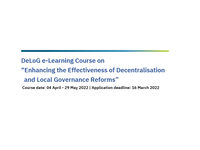
© 2022 DeLoG
|
|
E-Learning Course “Enhancing the Effectiveness of Decentralisation and Local Governance Reforms”
On April 4th the first session of DeLoG’s flagship e-learning course has started. The course has been on offer by DeLoG since 2014. The great interest is underlined by more than 140 applications from 42 countries. Last year, we revised and updated its content and methodology in collaboration with the Asian Development Bank. Gender equality, human-rights-based approach and “Leave No One Behind” principle are now reflected in all modules. Follow the link below for more information on DeLoG’s e-learning courses.
|
| |
|
|
| |
|
|
|
|
|
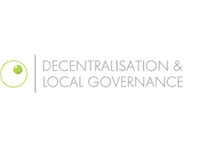
© 2022 DeLoG
|
|
A Warm Welcome to Our New Strategic Support Group Members
The Swedish International Centre for Local Democracy (ICLD), Network of Associations of Local Authorities of South-East Europe (NALAS) and VNG international joined DeLoG’s Strategic Support Group (SSG) in March. Together with Global Affairs Canada (GAC), Swiss Agency for Development and Cooperation (SDC) and the German Federal Ministry for Economic Cooperation and Development (BMZ), they now form the new board. The first meeting in this constellation took place on April 5th.
|
| |
|
|
|
|
|
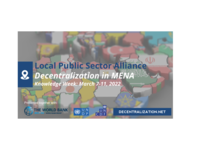
© 2015-2021 Local Public Sector Alliance
|
|
Webinar Series: Decentralization and Local Development in the Middle East & North Africa
To discuss the issue of decentralisation and whether decentralisation is a precondition for resilient, inclusive, sustainable, equitable and efficient development in the Middle East and North Africa, the Local Public Sector Alliance (LPSA) organised a webinar series from 07 – 11 May 2022. Together with UNDP, DeLoG co-hosted the sessions “Local Governance, Conflict, and Peacebuilding” and “Urban Governance, Social Inclusion and Fragility”.
For more information and to access recordings of the sessions please follow the link below.
|
| |
|
|
| |
|
|
|
|
|
News from our Members and Partners
|
|
|

© 2022 UN SDG ACTION CAMPAIGN
|
|
UN SDG Action Awards 2022 – Apply Now!
The UN SDG Action Awards celebrate organisations and individuals acting towards a sustainable future on a healthy planet. This year they are looking for initiatives that mobilise, inspire and connect people to drive sustainable change by 2030. Individual changemakers are also welcome to apply and share their transformation story. Applications close on 1 May 2022. Click below to submit yours.
|
| |
|
|
| |
|
|
|
|
|
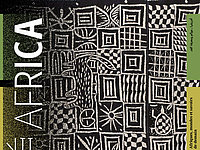
© 2022 Global Africa
|
|
Global Africa, A New Journal
Global Africa is a multidisciplinary and multilingual journal addressing the future of the African continent in response to global challenges. It presents reflections on global issues and their challenges from Africa and its diasporas, in order to think critically about the continent and its social, political, cultural, economic and scientific trajectories. In March 2022 the members of the consortium, supported by Agence française de développement (AFD), published its first issue of Global Africa with the title “Afriques, mondes et savoirs de demain” [Tomorrow’s Africas, Worlds and Knowledge]. Download is available below.
|
| |
|
|
| |
|
|
|
|
|
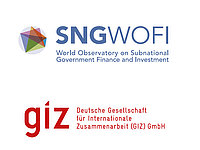
© 2022 United Cities and Local Governments
|
|
Report: Property Tax Webinar by SNG WOFI and GIZ
On Tuesday 5 April, the webinar “Property tax- Approaches, Successes and Challenges of Property Tax Reforms for Subnational Domestic Resource Mobilisation” took place. Jointly organised by the World Observatory on Subnational Government Finance and Investment (SNG WOFI) and the German Development Cooperation sector programme “Good Financial Governance” (SP GFG) implemented by GIZ, the webinar gave rise to very rich exchanges and demonstrated how property taxation and the mobilisation of own source revenues were instrumental to provide local and regional governments with the necessary resources to serve their communities. You can access the webinar report below.
|
| |
|
|
| |
|
|
|
|
|
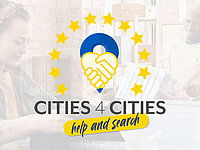
© 2022 STAR COOPERATION
|
|
City4City Platform Launch: Connected in Support of Ukrainian Municipalities
Under the patronage of the Congress of Local and Regional Authorities of the Council of Europe, the German city of Sindelfingen initiated the online matching platform Cities4Cities. The platform aims to connect local and regional leaders in Europe to support their counterparts in Ukraine in this emergency. Cities4Cities is meant for local authorities to exchange information but also to request and offer support to maintain local infrastructures and to guarantee the continuation of service for citizens in Ukrainian municipalities. Registration is free of charge. To become a member and join the platform follow the link below.
|
| |
|
|
| |
|
|
|
|
|
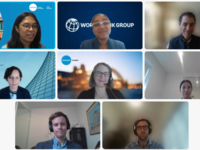
© 2022 Resilient Cities Network
|
|
Cities on the Frontline Speaker Series
When: Next sessions take place 21 April and 05 May 2022
Where: Online
Apply by: TBA
The fifth Cities on the Frontline session of 2022, jointly organised by Resilient Cities Network and the City Resilience Program by The World Bank, will focus on “Aligning Infrastructure for Resilience”. The sessions address different levels of city governance. The speakers will discuss how to respond to and recover from shocks and stresses related to the interconnected challenges of aging infrastructure, shifting macro-economic trends, and climate change. The upcoming sessions are “Catalyzing investment in resilient infrastructure and beyond” and “Aligning Infrastructure for Resilience”.
|
| |
|
|
| |
|
|
|
|
|
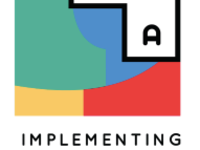
© 2020 United Nations Human Settlements Programme
|
|
High-Level Meeting on the New Urban Agenda
When: 28 April 2022
Where: New York, US
Apply by: /
In collaboration with UN-Habitat, the President of the UN General Assembly will convene a high-level meeting to assess the implementation of the New Urban Agenda, adopted at the Habitat III conference in 2016. The meeting will stream live-virtual, without any need for registration, on UN WebTv and UN YouTube.
|
| |
|
|
| |
|
|
|
|
|
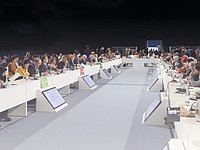
© 2022 Global Taskforce
|
|
ICLEI World Congress 2021 – 2022: The Malmö Summit
When: 11 May - 12 May 2022
Where: Hybrid (Malmö, Sweden)
Apply by: Registration open
The Malmö Summit will have three days of core programming for participants, featuring strategic high-level dialogues building on themes explored in 2021, as well as exciting technical visits, in-depth workshops and multiple networking opportunities especially suited for in-person participation. The event will feature a variety of sessions, divided into the following overarching categories: Strategies towards a climate neutral future, strategies towards resilient and healthy communities, and strategies towards equitable and inclusive communities.
|
| |
|
|
| |
|
|
|
|
|

© 2021 NALAS
|
|
NALAS 2022 General Assembly
When: 11 May – 13 May 2022
Where: Belgrade, Serbia
Apply by: TBA
NALAS is a network of associations of local authorities of South-East Europe. The Network’s 17th General Assembly will feature a statutory session, a water conference and several side events.
|
| |
|
|
| |
|
|
|
|
|
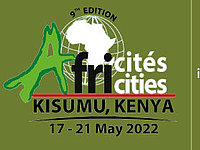
© 2021 CGLU Afrique / UCLG Africa
|
|
9th Africities Summit
When: 17 May – 21 May 2022
Where: Kisumu, Kenya
Apply by: Registration open
This year's Africities Summit has the theme “The Role of Intermediary Cities of Africa in the Implementation of Agenda 2030 of the United Nations and the African Union Agenda 2063”. The conference addresses the rapid urbanisation, and how the implementation of the agendas is linked to the improvement of the living conditions of the African people in intermediary cities and the economic and social structural transformation of the African continent.
|
| |
|
|
| |
|
|
|
|
|
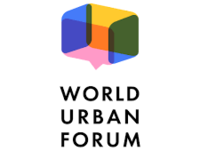
© 2012-2021 United Nations Human Settlements Programme
|
|
World Urban Forum 11
When: 26 June – 30 June 2022
Where: Katowice, Poland
Apply by: 22 June 2022
World Urban Forum is the premier global conference on sustainable urbanisation. It aims to address rapid urbanisation and its impact on cities, communities, and policies. This year's conference will be co-organised by Poland's Ministry of Development Funds and Regional Policy and the Municipal Office of Katowice. The theme of the conference is “Transforming our Cities for a Better Urban Future”. It will address the future of cities based on existing trends, challenges, and opportunities. Further, it suggests ways cities can be better prepared to address future pandemics and a wide range of other shocks.
|
| |
|
|
| |
|
|
|
|
|
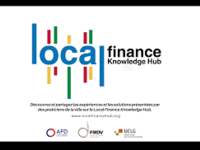
© 2017 FMDV
|
|
Webinar Cycle: Financer la Ville Durable de Demain
When: Webinar No. 2 takes place in June
Where: Online
Apply by: TBA
The webinar cycle "Financer la ville durable de demain" invites practitioners and experts in financing to share their knowledge and aims to develop a community of practice on local finance. GFCD and AFD will therefore organise five webinars from April to November 2022. They will be accompanied by "Stakeholder Voices" where city experts will share in video interviews their visions, experiences, and recommendations. The webinars will be held in French.
|
| |
|
|
| |
|
|
|
|
|
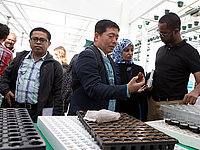
© 2022 The Hague Academy
|
|
Climate Adaptation & Local Resilience - The Hague Academy
When: 30 May 2022 - 10 June 2022
Where: The Hague
Apply by: 22 April 2022
|
| |
|
|
| |
|
|
|
|
|
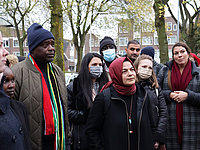
© 2022 The Hague Academy
|
|
Migration and Local Authorities - The Hague Academy
When: 4 July - 15 July 2022
Where: The Hague
Apply by: 27 May 2022
|
| |
|
|
| |
|
|
|
|
|

© 2022 The World Bank Group
|
|
Investing in Quality Infrastructure for a Green, Inclusive and Resilient Recovery | World Bank Group
When: Self-paced
Where: Online
Apply by: Registration open
|
| |
|
|
| |
|
|
|
|
|
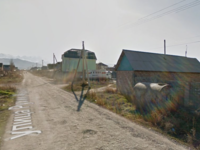
© 2021 Centre of Excellence of the University of Geneva
|
|
Introduction to Urban Economic Resilience Diagnostics and Action Planning in the Context of COVID-19 - City Resilience Training
When: Self-paced
Where: Online
Apply by: Registration open
|
| |
|
|
| |
|
|
|
|
|
Knowledge
|
|
|
Fiscal Decentralisation ● Local Finance
|
|
|
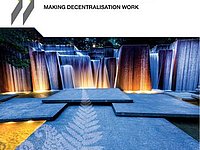
© 2022 OECD
|
|
Fiscal Federalism 2022: Making Decentralisation Work
The OECD report “Fiscal Federalism 2022” presents trends and policies in intergovernmental fiscal relations, particularly at subnational level. The following topics are addressed: good practices in fiscal federalism; fiscal equalisation systems; measuring subnational tax and spending autonomy; multilevel public sector performance; digitalisation; subnational accounting and insolvency frameworks; local government public investment; and the impact of COVID-19 crisis for intergovernmental fiscal relations.
Authors: OECD
Publisher: OECD
Publication Date: 2022
Copyright: OECD
|
| |
|
|
| |
|
|
|
|
|
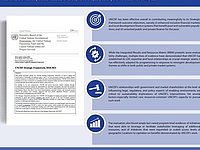
© 2022 UNCDF
|
|
Key Results from UNCDF Strategic Framework 2018-2022 - Final Evaluation
UNCDF Strategic Framework constitutes the strategic response of the organisation to 2030 Agenda for Sustainable Development, Addis Ababa Action Agenda, and Istanbul Program of Action (IPoA) for sustainable development in Least Developed Countries (LDCs). The evaluation results address UNCDF distinguishing features in the field of development cooperation, the implication of its approach to transformation, the impact achieved for women empowerment, as well as questions of funding and cooperation with donor institutions.
Authors: International Financial Consulting Ltd (IFCL) and Baastel
Publisher: UNCDF
Publication Date: 2022
Copyright: UNCDF
|
| |
|
|
| |
|
|
|
|
|
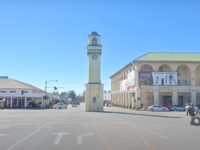
© 2015-2021 Local Public Sector Initiative
|
|
Local Governance and Local Budget Participation in Zimbabwe
To present the budgeting process of local authorities to the wider public, the Ministry of Local Government and Public Works in Zimbabwe, the Municipal Development Partnership, and VNG international produced a short educational video. The video shows the functioning, outcomes, and relevance of budgeting at local level. This will facilitate citizens and other key stakeholders to get engaged and actively participate in budgeting process in their community. You can watch the video by clicking on the link below.
|
| |
|
|
| |
|
|
|
|
|
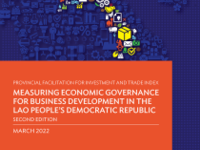
© 2022 Asian Development Bank
|
|
Provincial Facilitation for Investment and Trade (ProFIT) Index – Second Edition
The ProFIT index aims to measure how well provinces support private sector development, notably through economic governance measures that are under their mandate. It analyses experiences and perceptions of the business community in complying with regulations at the local government level.
Authors: Emma Allen et al.
Publisher: Asian Development Bank
Publication Date: 2022
Copyright: Asian Development Bank
|
| |
|
|
| |
|
|
|
|
|
Fragility ● Post-conflict Settings ● Migration
|
|
|
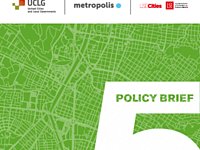
© 2022 Metropolis
|
|
Local Public Services in Crisis Mode: Adapting Governance Models to Exceptional Time
Public services – such as education, healthcare, and water and sanitation – underpin many fundamental rights. The ability of local governments to deliver appropriate services for citizens in protection of those rights, was dramatically challenges during the pandemic. By reviewing cases of how local public services worldwide have dealt with the COVID-19 crisis innovatively, this Policy Brief aims to extract lessons that may be useful in facing future emergencies – including the climate crisis. This Policy Brief is part of the Emergency Governance Initiative (EGI) led by UCLG, Metropolis and LSE Cities. Its aim is to provide subnational governments with actionable information, knowledge and resources to address complex emergencies.
Authors: Magdalena Rossetti and Nuno F. da Cruz
Publisher: UCLG, Metropolis, LSE Cities
Publication Date: 2022
Copyright: UCLG, Metropolis, LSE Cities
|
| |
|
|
| |
|
|
|
|
|
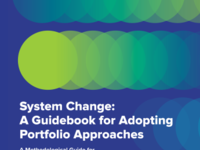
© 2022 United Nations Development Programme
|
|
System Change: A Guidebook for Adopting Portfolio Approaches - A Methodological Guide for Understanding and Addressing Complex Development Challenges
This guidebook codifies the principles and methods of applying systems change and portfolio approaches to complex development challenges with practical tools and examples. It is directed at development practitioners to prepare for, engage in, and manage systems transformation, on the base of on-the-ground applied learning from UNDP projects in cities across the Asia-Pacific, such as Rahim Yar Khan in Pakistan, Pasig City in the Philippines, and Da Nang in Viet Nam.
Author: Brent Wellsch
Publisher: UNDP
Publication Date: 2022
Copyright: UNDP
|
| |
|
|
| |
|
|
|
|
|
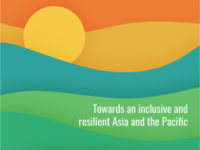
© 2022 Asian Development Bank
|
|
Building Forward Together: Towards an Inclusive and Resilient Asia and the Pacific
This report takes a closer look at the implications of COVID-19 pandemic for attaining the Sustainable Development Goals and countries' responses to pandemic-induced shocks and rising social and economic stresses. This co-publication by the United Nations Economic and Social Commission for Asia and the Pacific (ESCAP), the Asian Development Bank (ADB), and the United Nations Development Programme (UNDP), considers the key factors that are influencing the dynamics of recovery in parts of the region, and what we can learn faster and apply further, from what works.
Authors: Peter Hazlewood et al.
Publisher: ESCAP, ADB, UNDP
Publication Date: 2022
Copyright: United Nations, ADB, UNDP
|
| |
|
|
| |
|
|
|
|
|
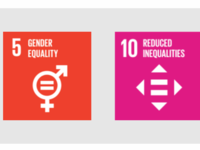
© 2022 United Nations Development Programme
|
|
How Can Women’s Leadership Promote Peace? Evidence from the Sahel
Increasing the political participation of women at local and national levels in Mali, Burkina Faso, Niger, and Cote d’Ivoire is the focus of the cooperation among UNDP, WANEP and the Economic Community of West African States. The goal of the cooperation is to foster women inclusion in governance systems, by strengthening community networks and promoting women economic empowerment and capacity development.
Author: UNDP Africa
Publisher: UNDP
Publication Date: 2022
Copyright: UNDP
|
| |
|
|
| |
|
|
|
|
|
2030 Agenda ● Localising the SDGs
|
|
|
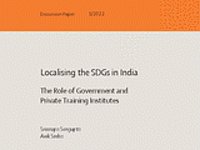
© 2022 Deutsches Institut für Entwicklungspolitik
|
|
Localising the SDGs in India: The Role of Government and Private Training Institutes
To implement SDGs and achieve the goals of Agenda 2030 governments at all levels require new skills and resources. Capacity building is therefore of pivotal importance to the process. Despite the wide offer, the situation of countries and government level varies, calling for targeted action. This discussion paper explores the SDG training landscape for government officials in India, focusing on challenges and recommendations for practitioners.
Authors: Sreerupa Sengupta and Avik Sinha
Publisher: German Development Institute (DIE)
Publication Date: 2022
Copyright: German Development Institute (DIE)
|
| |
|
|
| |
|
|
|
|
|
Urban and Territorial Governance
|
|
|
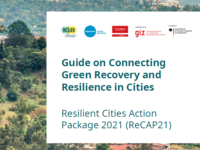
© 2021 ICLEI - Local Governments for Sustainability
|
|
Resilient Cities Action Package 2021 (ReCAP21): Guide on Connecting Green Recovery and Resilience in Cities
To support the cities recovery efforts from the COVID-19 pandemic, ICLEI put together the Resilient Cities Action Package 2021 (ReCAP21). The goal of the guide is to collect tools for technical and capacity building, which local governments in the Global South can directly make use of. The tools reflect a holistic approach, linking recovery to sustainable transformation. This includes plan design, as well as implementation and measures development. ReCAP21 is directed specifically at city recovery in Rwanda, Bangladesh, and Mauritania (including primary healthcare, health management, public life) while addressing other challenges at local level.
Authors: ICLEI, GIZ, Cities Alliance
Publisher: ICLEI
Publication Date: 2022
Copyright: ICLEI
|
| |
|
|
| |
|
|
|
|
|
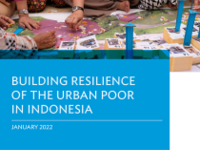
© 2022 Asian Development Bank
|
|
Building Resilience of the Urban Poor in Indonesia
Reducing poverty is strongly connected to increasing resilience in cities in the context of climate change and the pandemic. The case of Indonesia shows that urban areas are in fact particularly exposed to natural hazards, disasters and climate risks, which consequences affect especially the poor. Building resilience explicitly of the poor in urban areas can produce urbanisation processes that benefit all equally. These will have to collectively promote coping, incremental, and transformational strategies. The publication provides insights in the strategic areas to be addressed as well as background information on the resilience-poverty nexus.
Authors: ADB
Publisher: ADB
Publication Date: 2022
Copyright: ADB
|
| |
|
|
| |
|
|
|
|
|
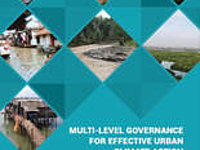
© 2012-2022 United Nations Human Settlements Programme
|
|
Multi-Level Governance for Effective Urban Climate Action in the Global South
This paper argues the case for multilevel governance to increase the response capacity of cities in the Global South in the face of climate change. Though cities play a primary role in combating the climate risks, they cannot be left alone. Multilevel governance can contribute to finding effective solutions, that work on several fronts of resilience. The paper addresses the question of how to improve horizontal and vertical coordination as well as considering the contributions of non-state actors such as the private sector, civil societies, community organisations, and academia in the Global South.
Editor: Rashid Abubakar
Publisher: UN-Habitat
Publication Date: 2022
Copyright: UN-Habitat
|
| |
|
|
| |
|
|
|
|
|
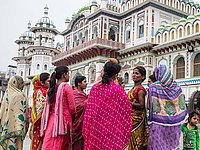
© UNOPS, John Rae
|
|
Gender-Sensitive Infrastructure Planning Means Better Cities for Everyone
In this URBANET article, Felicity Kitchin, Giulia Maci and Arne Janssen discuss the effects of inclusive infrastructures for inclusive cities. They argue that as the G7 Presidency Programme seeks to harness the transformative power of cities, social considerations need to be included to ensure that it is pro-poor and gender-inclusive from its conception phase.
Authors: Felicity Kitchin, Giulia Maci, and Arne Janssen
Publisher: Urbanet
Publication Date: 2022
Copyright: GIZ
|
| |
|
|
| |
|
|
|
|
| |
|
|
| |
For access to many more inspiring publications on
1. DLG in Contexts of Fragility, Migration and Post-Conflict Settings,
2. Fiscal Decentralisation and Local Finance,
3. Localising the 2030 Agenda or
4. Urban and Territorial Governance
make sure to visit the regularly updated "Knowledge Section" of our DeLoG Website!
|
|
|































